Keeping the fire for learning burning in all our eyes.
Mind in the Making curates the science of children’s brain development and learning, shares it with the general public, families, and professionals and translates this research into transformational in-depth training and materials. MITM’s Learning Modules, Skill-Building Opportunities and Book Tips serve families and professionals across a wide array of sectors and take a two-generational approach to building executive function-based [EF) life skills within children and families together.
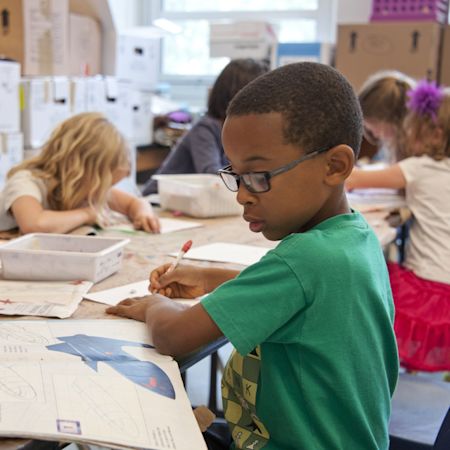
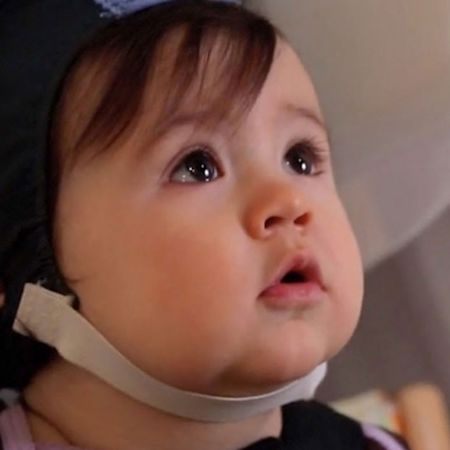
Want to better understand how children learn and how we can take simple, effective steps to promote more engaged learning?
Executive function skills are top-down neurocognitive processes” we use to manage and coordinate our emotions, thoughts, and behavior to achieve goals.Philip David Zelazo of the University of Minnesota, says that executive function skills are best understood as a “broad umbrella concept,” because they’re defined behaviorally in terms of what people do. He continues:
Executive function skills provide a foundation for learning deliberately and for adapting to life’s challenges. Whenever we want to do something deliberately, we need to rely on these attention regulation skills.
EF skills enable us to:
Think flexibly: Consider alternative perspectives and think flexibly in response to changing circumstances (cognitive flexibility)
Use what we know: Keep information in mind so it can be used (working memory)
Use self-control: Resist automatic and impulsive behaviors (inhibitory control) so we can engage in goal-directed reasoning and problem solving and persist in reaching goals
Reflect: Notice challenges, pause, step back, consider options, and put things into context before responding (reflection)
Life skills are based on executive functions; they bring together our social, emotional and cognitive capacities to problem solve and achieve goals. Studies have found they are critical to success in school and life.
Children need this Life Skill to achieve their goals, especially in a world that is filled with distractions and information overload. It involves paying attention, remembering the rules, thinking flexibly and exercising self-control
Perspective Taking goes far beyond empathy: it involves figuring out what others think and feel, and forms the basis of children understanding the intentions of their parents’ teachers’ and friends. Children who can take others’ perspectives are also much less likely to get involved in conflicts
Making Connections is at the heart of learning: figuring out what’s the same, what’s different and sorting these things into categories. Making unusual connections is at the core of creativity. In a world where people can Google information, those who can see the connections will go beyond knowing information to using it.
Critical Thinking is the ongoing search for valid and reliable knowledge to guide beliefs, decisions, and actions.
Life is full of stresses and challenges. Children who are willing to take on challenges (instead of avoiding them or simply coping with them) do better in school and in life.
It is through learning that we can realize our potential. As the world changes, so can we, for as long as we live—as long as we learn.
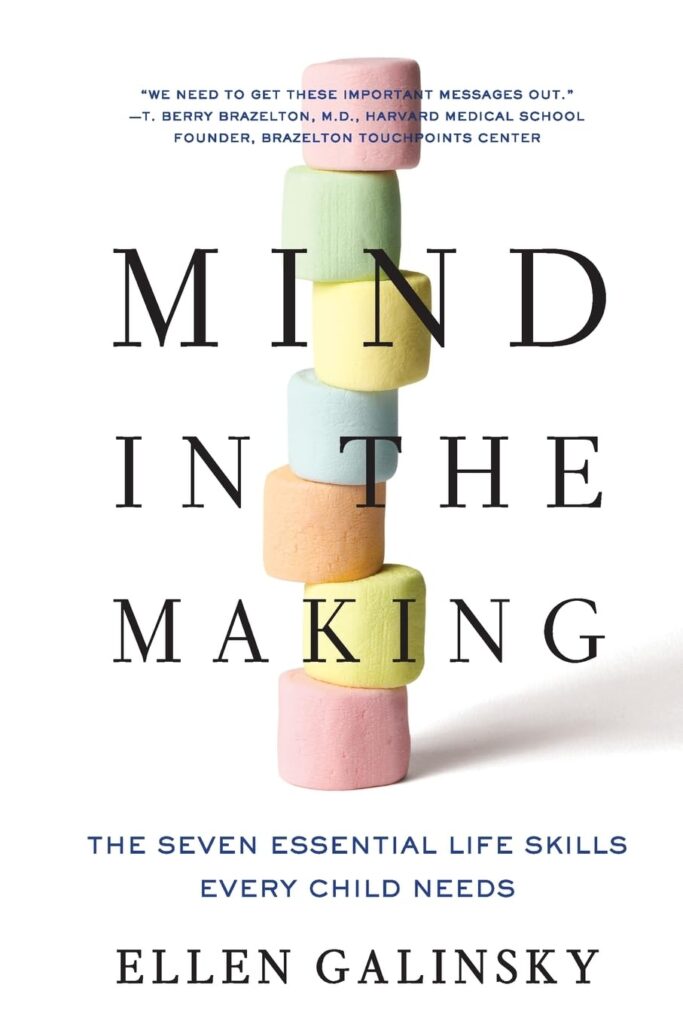
Mind in the Making
“Ellen Galinsky—already the go-to person on interaction between families and the workplace—draws on fresh research to explain what we ought to be teaching our children. This is a must-reading for everyone who cares about America’s fate in the 21st century.” — Judy Woodruff, Senior Correspondent for The PBS NewsHour
Families and Work Institute President Ellen Galinsky (Ask the Children, The Six Stages of Parenthood) presents a book of groundbreaking advice based on the latest research on child development.
There are hundreds of books that give parents advice on everything from weaning to toilet training, from discipline to nutrition. But in spite of this overwhelming amount of information, there is very little research-based advice for parents on how to raise their children to be well rounded and achieve their full potential, helping them learn to take on life’s challenges, communicate well with others, and remain committed to learning. These are the “essential life skills” that Ellen Galinsky has spent her career pursuing, through her own studies and through decades of talking with more than a hundred of the most outstanding researchers in child development and neuroscience. The good news is that there are simple everyday things that all parents can do to build these skills in their children for today and for the future. They don’t cost money, and it’s never too late to begin.
In Mind in the Making, Ellen Galinsky has grouped this research into seven critical areas that children need most: (1) focus and self control; (2) perspective taking; (3) communicating; (4) making connections; (5) critical thinking; (6) taking on challenges; and (7) self-directed, engaged learning. For each of these skills, Galinsky shows parents what the studies have proven, and she provides numerous concrete things that parents can do—starting today—to strengthen these skills in their children. These aren’t the kinds of skills that children just pick up; these skills have to be fostered. They are the skills that give children the ability to focus on their goals so that they can learn more easily and communicate what they’ve learned. These are the skills that prepare children for the pressures of modern life, skills that they will draw on now and for years to come.
With in-depth module training and a world of free tip sheets in English and Spanish, we make it easy to understand – and put into daily practice – the science of children’s learning.
Picky Eating, Bedtime Fears, Meltdowns, Constant Crying, Sibling Rivalry: what’s a parent to do?
Mind in the Making is here to help you discover the skills that every child needs. We’ve researched the questions parents most frequently ask each other, their families and the professionals in their lives.
And we’ve taken those questions and created 1-page guides for parents and professionals to help them turn common behavioral issues into opportunities to promote life skills in children.
Turn challenging moments into skill-building opportunities.
Turn storytime into skill-building time.
These free, downloadable resources offer tips for building children’s life skills based on classic and diverse children’s books.
With content customized to each book, Book Tips help boost science-driven learning, fun and engagement between children and adults. These resources are available in English and Spanish and designed for three age groups, infants and toddlers, preschoolers and school-age.
Educators can also access Book Tips through a partnership with First Book, a nonprofit social enterprise that provides books and educational materials for educators serving children in need.
Our companion discussion guide and workbook are for readers to reflect personally on how EF skills take shape in their own lives. They’re a great pairing for parents and educators who want to inspire lifelong learners and anyone with an interest in understanding the Life Skills and how they can influence our thinking and behavior in positive ways.
Dedicated to sharing the science of children’s learning to families and professionals
MITM training provides opportunities for adults to examine child development research and themselves to create strategic actions they can take to promote executive function-based skills in children ages 0-8. Over the past 10+ years, we have offered in-person Learning Modules training to about 100,000 educators, community leaders, families and professionals from education, libraries, medical facilities, museums, home visiting, parent education, churches, juvenile justice and more.
Each of the eight MITM Learning Modules offer transformational learning that:
Professionals in an experiential process of self-reflection and self-discovery to explore their own competence in each of the executive function-based life skills, probe why each skill is important in their own lives and develop strategies to improve the skill in themselves.
Adults’ experiences to the research on the skills in children’s lives—why it’s important, how it develops and how it can be promoted—through information and videos that that are virtual field trips to the labs of the most respected and compelling child development researchers, who share what they study and what they have learned on the skills in an accessible and compelling way.
Specific evidence-based activities that participants can use to promote the skill in children.
Each participant to create action plans to promote the skills in themselves and in children, which they revisit in subsequent modules.
The training provides a common language and approach to supporting children and their families to develop important life skills needed to thrive. They also provide evidence-based professional development which fits nicely with existing systems of professional development and equips attendees to share the information within their organizations and communities.
For more information about MITM training, contact the MITM Team
MITM partnered with Mount Sinai Parenting Center to create a free, online Keystones of Development curriculum to train pediatric residents on promoting brain development and helping strengthen parent-child relationships within routine well-child visits.
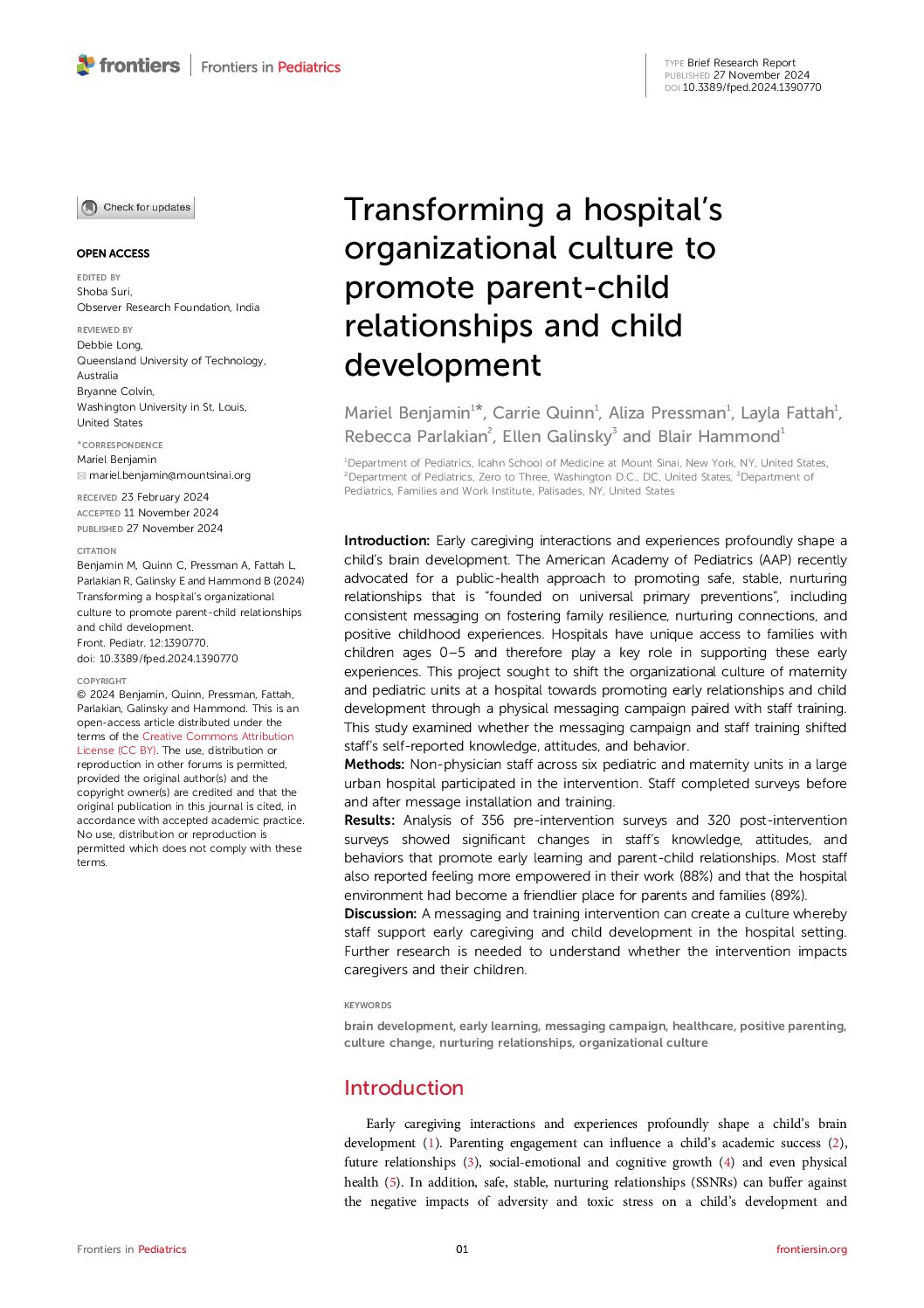
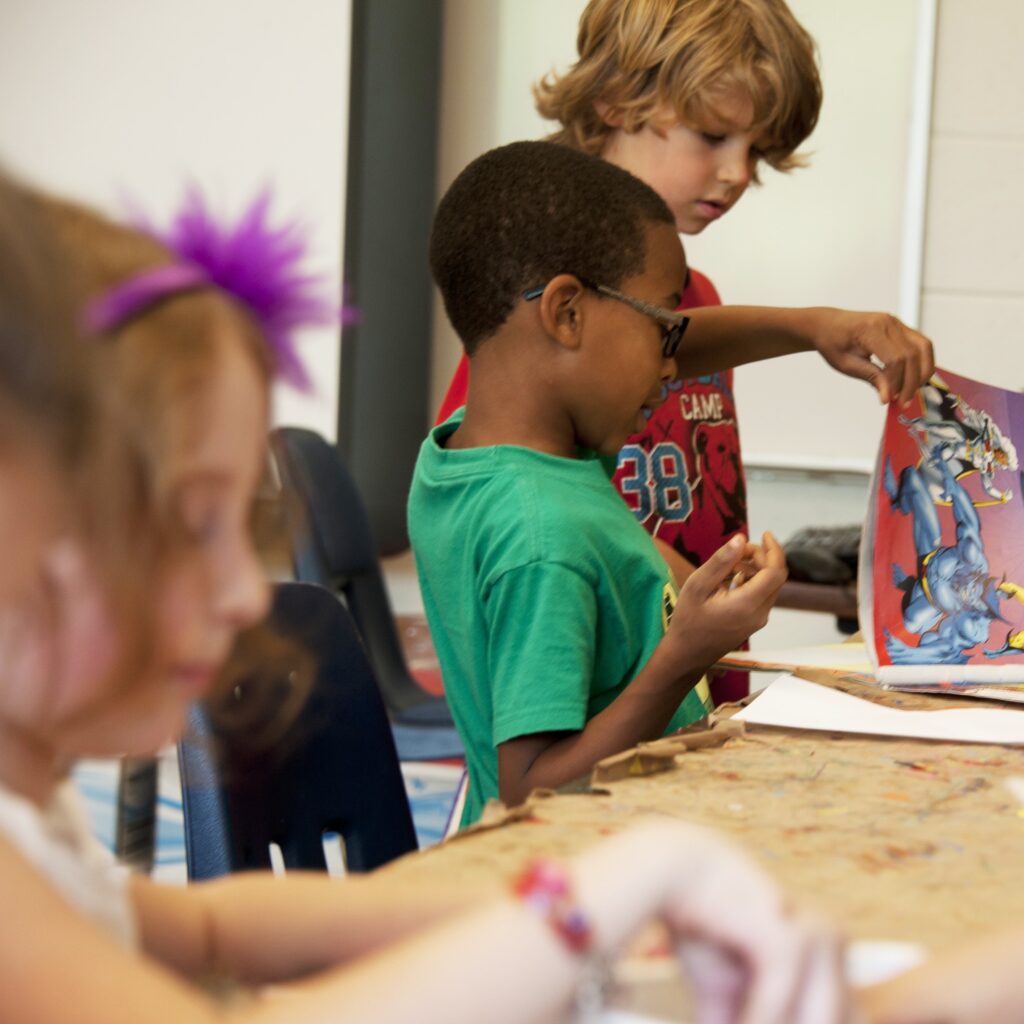
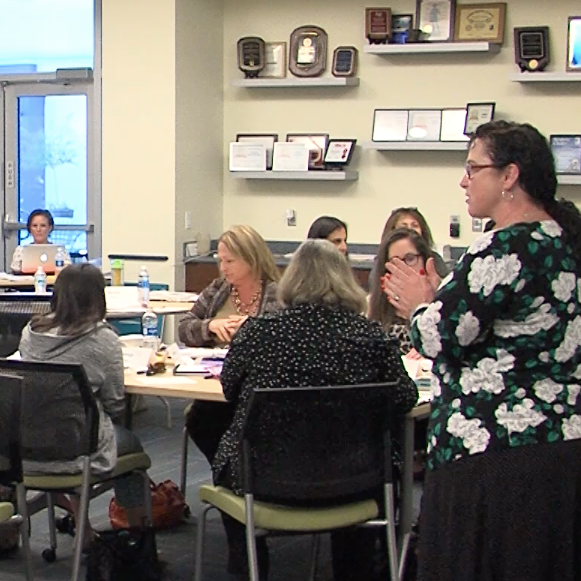
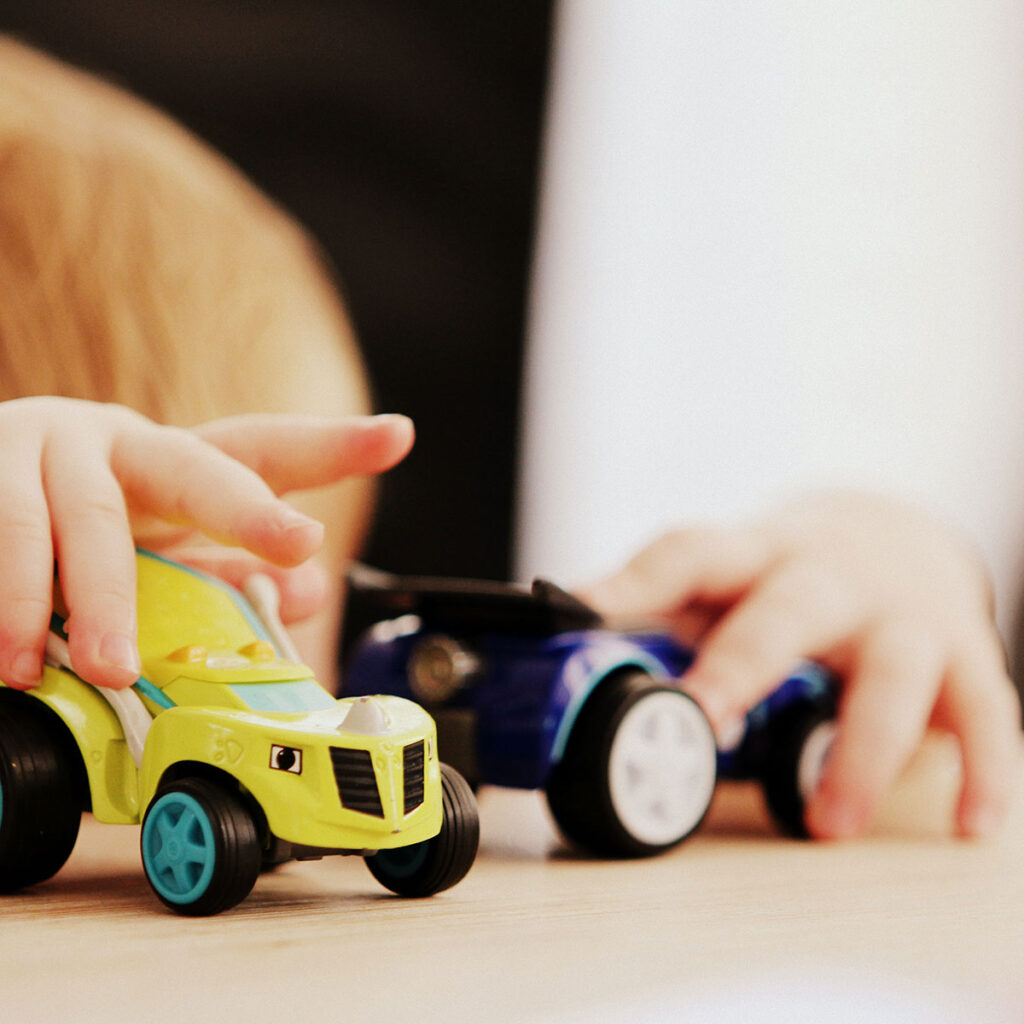
Opinion: Troubled youth? Contrary to stereotypes, much of Gen Z is doing just fine
Los Angeles Times
Strict Parenting? Gentle Parenting? Ellen Galinsky’s “Autonomy-Support” Alternative
Letgrow.org
Of Toddlers and Teenagers: Ellen Galinsky Breaks Through Adolescence with Brain Science and New Book
Early Learning Nation
Gen Alpha won’t know a world without social media and AI. Here are 3 tips for parents raising kids in a digital world.
Business Insider
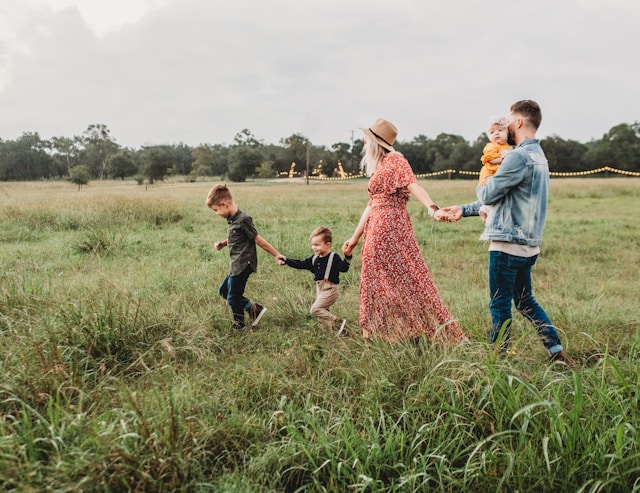
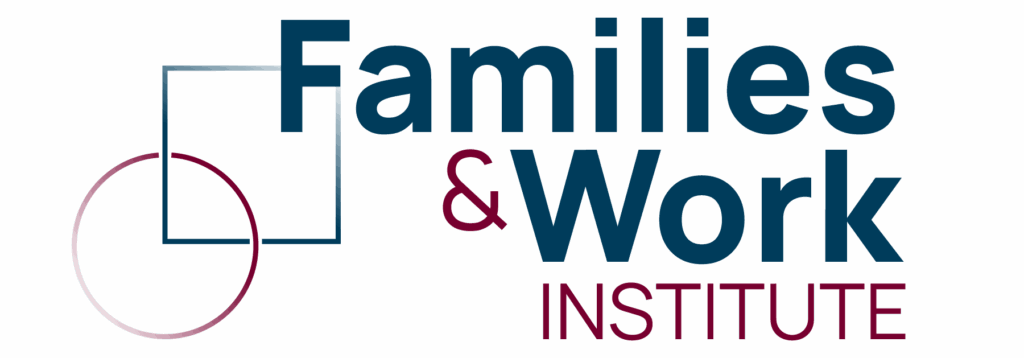
Your support will allow us to continue to deliver our high-quality research, publications, and services to you. Families and Work Institute is registered as a 503(c)(3) non profit organization
EIN 13-3560042.
To provide a Corporate Gift or have Donation questions – Please email donate@familiesandwork.org